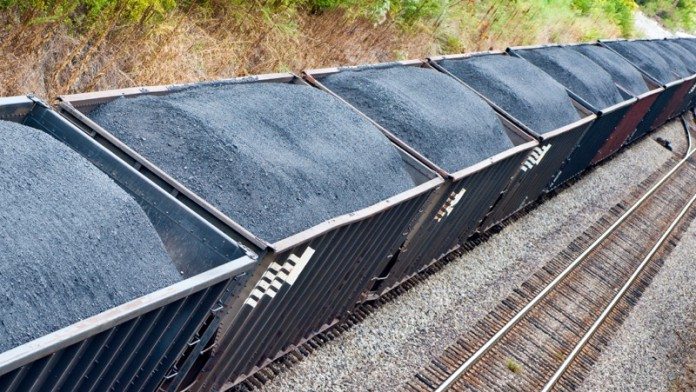
The long-underperforming “Quattro” coal export scheme which is intended to help black empowered junior coal miners export through the Richards Bay Coal Terminal (RBCT) may finally start hitting its straps this year according to RBCT CEO Alan Waller.
The Quattro scheme dates back to 2004. Since the Phase 5 expansion of the terminal was completed in 2010, an amount of 4mt/year has been reserved for the sole use of junior miners selected to participate in the scheme through a process run by the Department of Mineral Resource (DMR).
The RBCT agreed to this as part of its response to accusations that it was attempting to stifle access by junior miners to the coal export markets in favour of its members which were made up mainly of the country’s major coal producers.
The scheme has never gotten near the 4mt/year target and has been fraught with problems relating to the selection of the participants and the ability of the participants chosen to actually produce and deliver the coal.
The rules for membership specifically state that “coal trading, logistics and marketing companies are not permitted in the scheme” and that members must be “actively mining coal or will start within a period of 12 months of issuing of a mining right”.
Yet, in one notorious incident, a BEE coal trader managed to get a shipment of coal railed through to the RBCT in terms of the Quattro scheme despite not being a coal miner.
Latest statistics from the RBCT show that only 1.9mt of coal was exported in terms of the Quattro scheme last year. Waller told a press briefing held at Richards Bay on January 23 that the scheme had consistently underperformed over the past few years with volumes ranging from around 1.8mt/year to 2.2mt/year.
He attributed much of this to problems with the “CITT process” ( the Coal Industry Task Team overseen by the DME ) but commented, “in the past 12 to 18 months we have made a lot of traction in terms of that CITT process. There has been a whole re-allocation and re-application process.
“There were about 22 parties that were awarded allocation making up the four million tons. Four of those parties declined to take up their entitlements when they understood the commercial implications and the financial requirements of the process.
“A few others have also fallen foul of the process. At this stage we are sitting with about 13 junior miners with whom we have signed new contracts. The new contracts are now five year contracts instead of the previous three year contracts and the intention is get them all up to about the 300,000t/year allocation level.
“At least now there is certainty because up until 12 months ago only about 2.5mt of that 4mt was actually being allocated to junior miners whereas now we are at a point where all of it has been allocated. “
“So we are certainly optimistic in terms of 2020 that the junior miner participation will increase. I cannot speak for the juniors but the positive factor – speaking from a logical point of view – is that I would not sign a take or pay contract with TFR (Transet Freight Rail) if I have no intention of using it.
“The RBCT does not sign a contract with any junior who is not an approved counterparty of TFR or TNPA (the ports authority),” Waller said.











